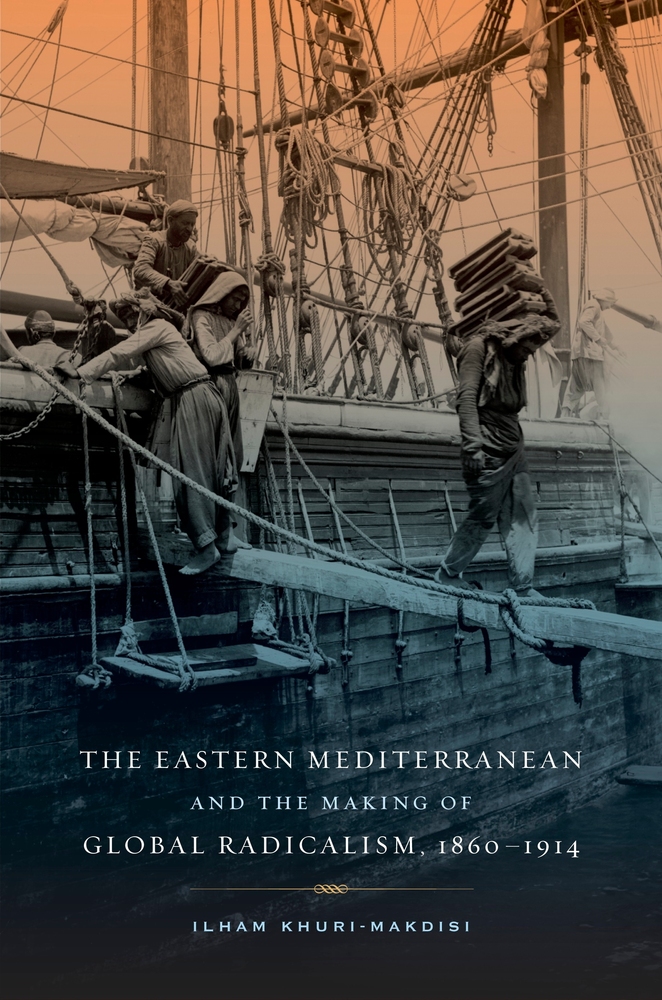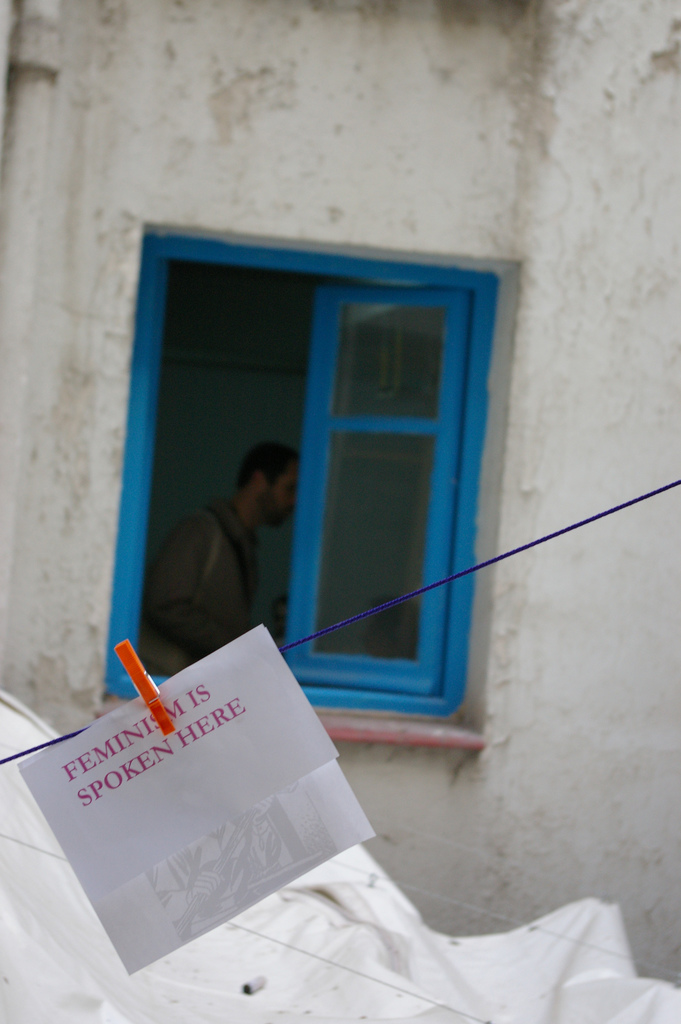It’s that time of the year again, folks! Get your keyboards ready for outraged op-eds, caroling controversies, and coffee cup complaints! As the days grow short, the trees go bare, and snow coats the land, we must now engage in the time-honored, perennial tradition that so perfectly encapsulates the twenty-first-century American winter. Come all ye faithful and take up arms in the War on Christmas!
And this year, there’s a new twist! A new source of aggrievement! As COVID-19 cases soar throughout the nation, many states are establishing new travel restrictions and encouraging people to hold off on large holiday gatherings. With 318,000 Americans dead as of December 21 and scientists projecting a grave winter outbreak, it’s important to remember the true victim of all this: Christians! As much as things may change in this turbulent year, some culture wars never end. As Brenda Lee put it, this truly is “the new old fashioned way!”
If this seems strange, you’re unaware of the latest outrage in the conservative media sphere. At a rally in Arizona in late October, President Trump warned the crowd that a Joe Biden presidency means “no kids in school, no graduations, no weddings, no Thanksgiving, no Christmas, and no Fourth of July together.” Later, he reinforced the message to his nearly ninety million Twitter followers.
If you vote for Biden, your kids will not be in school, there will be no graduations, no weddings, no Thanksgiving, no Christmas, and no Fourth of July! pic.twitter.com/Pjyd8TGXME
— Donald J. Trump (@realDonaldTrump) October 28, 2020
Conservatives have been adamant about the fundamental danger posed to Christmas by choosing to address the new surge in the coronavirus, which peaked at more than 280,000 new cases per day in December.
Much of the outrage has arisen from an interview Doctor Anthony Fauci gave to CNN’s Jake Tapper, in which Tapper speculated that Christmas celebrations might not be possible given the vaccine timeline. Fox News ran a story based purely on the statement.
Similarly, Fox News television hosts, reliable shock troopers in the culture wars, have joined in the “Christmas canceled” hysteria. On a November 17 Fox and Friends segment, guest Charles Payne bemoaned how Thanksgiving, followed by Christmas, will be ruined by COVID-19 guidelines. Payne went as far as to compare it to the family separations at the border by the Trump administration, which were last tallied to be above 5,500 cases.
Yep. If you are forced to visit your vulnerable parents online this holiday season, remember whose plight is similar to yours: that of the 666 migrant children whose parents can’t be found.
It wasn’t long before Tucker Carlson got in on the act, saying that politicians “figured out that Christmas is bigger than they are, and therefore it’s a threat to them. Better cancel it.” Virtually every year, controversy abounds over isolated incidents of some perceived slight against Christmas. Yet the vast majority are non-issues like merely saying “Happy Holidays.” But many conservatives see them all the same. Like clockwork, conservative culture warriors falsely extrapolate these issues as indicative of a broader war on faith and Christianity.
The Ghost of Christmas Outrage Past
There has long been a fear among the Christian right that America is being cleansed of its Christian roots. Despite the country’s supposed founding principle of separation of church and state, that secularization was never total; Protestantism was dominant, and there was little questioning of its place in the public domain. But changing cultural attitudes and demographics in America led to a reimagining of our views.
In the late twentieth century, the Supreme Court began paving the way for more secularization in the public sphere. In Engel v. Vitale, the Supreme Court ruled that the prayer authorized by the New York State Board of Regents violated the Establishment Clause of the First Amendment.
The case was brought by a Jewish father, which only exacerbated the antisemitism that already existed in “war on faith” circles. As far back as the 1920s, culture warriors have answered the question of “who is waging a war on Christianity” with “Jews.” Henry Ford’s newsweekly claimed that “people sometimes ask why 3,000,000 Jews can control the affairs of 100,000,000 Americans. In the same way that ten Jewish students can abolish the mention of Christmas and Easter out of schools containing 3,000 Christian pupils.”
The growing acceptance of other religions and atheism, commercialization of holidays, and Supreme Court cases expanding the Engel precedent—such as Abington School District v. Schempp—have further perturbed the religious right.
Such then is the appeal of the War on Christmas. It plays on existing fears and a sense of aggrievement, then amplifies them.
The term originated from a man named Peter Brimelow, an anti-immigration advocate who pushed racist, nationalistic vitriol on his website, VDare.com. In 1999, his site became the frontline of the War on Christmas, vilifying the Department of Housing and Urban Development for hosting “A Celebration of Holiday Traditions” and Amazon.com for greeting customers with “Happy Holidays.”
The War on Christmas was then taken up in the early 2000s by Fox News personalities, talk radio hosts, and Christian advocacy groups. In 2003, the American Family Association created an annual “Naughty or Nice” list that ranks companies based on how “Christmas-friendly” they are. The group, along with others like the Liberty Counsel, targeted retailers with boycotts for not mentioning Christmas enough in their advertising. Target, Sears, and Walmart all found themselves in the crossfires of the manufactured scandal. In some cases, the retailers capitulated.
While Brimelow and the religious right might have fired the first reactionary shots, Fox News got the troops in line. The first mention of the War on Christmas on Fox came on December 7, 2004, when The O’Reilly Factor ran the segment “Christmas Under Siege.” In it, Bill O’Reilly rattled off a series of events that ostensibly proved an unrelenting attack on Christians, carried out by “secular progressives” to push gay marriage, abortion, drugs, and other evils down the throats of Americans:
“All over the country, Christmas is taking flak. In Denver this past weekend, no religious floats were permitted in the holiday parade there. In New York City, Mayor [Michael] Bloomberg unveiled the ‘holiday tree,’ and no Christian Christmas symbols are allowed in the public schools. Federated Department Stores — that’s Macy’s — have done away with the Christmas greeting ‘Merry Christmas.’”
The problem? Each of these claims was either blown out of proportion or outright false.
The religious floats in Denver were not excluded to demonize religion, but because the parade had to shrink its size, and the Downtown Denver Partnership did not want to play favorites. While then-Mayor Bloomberg did call the tree at the Rockefeller Center the “holiday tree,” it was hardly indicative of a broader trend. It was referred to as a “Christmas tree” by the company who supplied the crystal star, the Associated Press in a story on the tree, and a website devoted to the tree.
Similarly, New York public schools did not single out Christian symbols for banning. They simply upheld a policy stating that if a symbol for one religion was present, symbols for others must be displayed as well.
And finally, Federated Department Stores actually allowed its stores to make their own decisions on advertising. While this led to some stores swapping “Merry Christmas” for the more inclusive “Happy Holidays”—a term whose usage dates back to the 1840s—this actually received little organic attention. That was until Fox News drew massive attention to the “Committee to Save Merry Christmas,” an astroturf organization that turned out to belong only to one person, Manuel Zammarano.
But the frivolity of it all didn’t stop the not-even-quasi-war from becoming a regular topic on Fox News programs. TV Host John Gibson took the struggle more personally than most, as evidenced in his 2005 book, The War on Christmas: How the Liberal Plot to Ban the Sacred Christian Holiday Is Worse Than You Thought.
The war received much less coverage outside of Fox News, but this meant little considering Fox News had surpassed CNN as the most-watched cable news network in 2002. Networks like CNN only occasionally indulged War on Christmas fighters such as Bob Knight, former Director of the Culture & Family Institute. Even then, pundits seemed to underestimate the seriousness with which evangelists approached the topic. Consider this exchange from a debate between Sam Seder, then a radio host on Air America, and Knight from a 2005 CNN segment moderated by Kyra Phillips.
PHILLIPS: What’s interesting is a CNN U.S.A. Today Gallup poll, the question was “Is it okay for people to say Merry Christmas.” Eighty-eight percent said yes, eleven percent said no.
KNIGHT: Ninety-six percent of Americans celebrate Christmas. Why would we care about offending the four percent-
SEDER: So what’s the war, Bob?
KNIGHT: -that get offended by it?
PHILLIPS: Why do we care? Why are we making all the changes, Bob?
SEDER: Bob, where’s the war? Where are the battle lines? I mean, you can tell me “Silent Night” can’t be sung in one school in Wisconsin.
KNIGHT: That’s just one example. that’s not the totality, so don’t create that straw man.
SEDER: What is the totality? The totality is — you brought it up. The totality is eighty-eight percent of the American population has no problem with it. You don’t care about the people who don’t celebrate Christmas, fine. But I don’t celebrate Christmas, and I don’t care. So why are we wasting everybody’s time? It’s so that you can fundraise, that’s why Bob.
Seder may have had a point with the fundraising jab. Christian groups played into the War on Christmas heavily. President Trump later fundraised for his reelection campaign by portraying himself as the one who made it acceptable to say Merry Christmas again. This sort of rhetoric resonated with his religious base, garnering him 81 percent of the White evangelical vote in 2020. The fact that conservatives are still talking about the War on Christmas—fifteen years after its first boots on the ground—speaks to its effectiveness as a scare tactic.
Trump's campaign is currently fundraising off the idea that he made it OK to say Merry Christmas. 🙃 pic.twitter.com/DLVv06wevv
— Jennifer Bendery (@jbendery) December 17, 2018
The Ghost of Christmas Outrage Present
In the last decade, the War on Christmas has not subsided, dragging on alongside real conflicts. It has often been tailored to align with other culture war battles. During President Obama’s administration, the racial animus unleashed by the presence of a Black president and new conversations about race sparked a new element to the supposed attack on Christmas.
In 2013, Slate writer Aisha Harris contended in a piece titled “Santa Claus Should Not Be a White Man Anymore” that a White-by-default Old Saint Nick had become obsolete in a society that seeks to be post-racial. Despite her lighthearted tone—“from here on out, Santa Claus should be a penguin”—Fox News host Megyn Kelly took the bait, saying “all you kids watching at home, Santa just is White.”
The changing climate around women’s issues provided another front for the war. As the country grappled with accountability for sexual harassment, which later became the #MeToo movement, the Christmas song “Baby It’s Cold Outside” came under scrutiny. While the song had its fair share of feminist defenders, the conservative backlash to the controversy was not so nuanced. Their defense of the song was not a complex assessment of its meaning and implications, but a knee-jerk reaction to turn any national conversation into another battle in the War on Christmas. Tradition superseded rational analysis. Tucker Carlson summed up the sentiment by dismissing concerns about the woman in the song being coerced: “And yet for fifty years she never complained about it!”
An entire generation of Fox News hosts have taken part in this war. Where O’Reilly, Gibson, and Sean Hannity started, a new crop of soldiers have followed. Carlson, Laura Ingraham, and other hosts can’t resist returning to the well that never dries up. There have been countless “Christmas controversies” in the last decade, but here are some other noteworthy events that have been incorporated into this forever war:
- In 2015, Starbucks’ seasonal holiday cups were red with winter-related images, but no explicit Christmas references. This drew the wrath of many conservatives, including then-candidate Trump, who called for a boycott and vowed, “If I become president, we’re all going to be saying ‘Merry Christmas’ again.”
- In 2018, HuffPost compiled a series of random, non-serious tweets on Twitter criticizing the Christmas special Rudolph the Red Nosed Reindeer, and packaged them into a clickbait styled video titled “The holiday TV classic ‘Rudolph The Red-Nosed Reindeer’ is seriously problematic.” Retweeted by Donald Trump Jr., the tweet was taken out of context and made its way over to a familiar home: Fox News. Carlson and conservative commentator Dave Rubin obsessed over the “attack,” either unaware or unbothered by the actual substance of the incident.
Swear to God this is what’s on Fox News right now. pic.twitter.com/enwKobjmaK
— Xeni Jardin (@xeni) November 30, 2018
- And last year, when Trump’s impeachment dominated headlines and there was less time to drum up obscure stories to amplify, Fox News doubled–dipped in the Starbucks controversy. This time, Trish Regan obsessed over the phrase “Merry Coffee” being present on new coffee cups.
With such a storied history, is it any wonder COVID-19 presents a fresh opportunity for old Christmas grievances?
The Ghost of Christmas Outrage Yet to Come
The War on Christmas isn’t going anywhere. But is there any merit to these claims? Are Americans becoming hostile towards Christmas?
Simply put, the answer is no. While Americans are becoming more accustomed to inclusive phraseology and tolerance of other religious traditions, there is no evidence to suggest that Christianity faces any real threat. More than half of Americans do not care about trivial things like how they are greeted by grocery store clerks.
Christmas is still alive and well. It’s even become commonplace to remark humorously about the “Christmas Creep,” a documentable phenomenon in which retailers advertise Christmas products well before the season actually begins. In the great state of Massachusetts, one can obtain eggnog as early as September at the local Market Basket. If the nebulously defined “powers that be” are making Christmas a thing of the past, this certainly seems to be a strange way of doing so.
The War on Christmas is a myth that breaks down in the face of the holiday’s enduring popularity. According to a 2019 Gallup poll, 93 percent of Americans celebrate Christmas, well above the percentage that are Christian.
While it’s unfortunate that many families cannot gather physically, they can still display affection for one another. Old traditions like sending letters combined with teleconferencing can make this holiday season just as special as the ones before. After all, what better way to show how much you love someone than prioritizing their health? For the sake of the nation, Christmas crusaders should lay down their arms and consider the health of their loved ones.
But don’t hold your breath. Old habits die hard, and the reactionary right has made fake outrage their perennial home. And no matter how far they roam, “for the holidays you can’t beat home, sweet home.”




